CHF 10 million for young talents
Seven researchers from ETH Zurich are to receive an ERC Starting Grant. The European Research Council supports talented young researchers as they embark on their academic careers. More than half the grants awarded this year go to young female researchers.
Each researcher receives about CHF 1.5 million from Europe’s main funding pot, enabling them to make significant advances in their research projects and careers. “Facing the competition is a valuable experience for all researchers and one that always pays off for them. Our task is therefore to motivate talented young people who are just starting out in their careers,” says Detlef Günther, Vice President of Research and Corporate Relations at ETH Zurich. A good example is 33-year-old Maryam Kamgarpour, who was a postdoctoral researcher when she submitted her proposal and has now received an assistant professorship – as required by ETH guidelines when a candidate receives a Starting Grant.
A total of 11 projects eligible for funding
For Günther, it is crucial to encourage and support young researchers – even if they do not succeed at the first attempt. In addition to the seven winning projects, the ERC also classified four additional submissions as eligible in principle for funding, but did not include them this year due to limited resources. “I’m excited about all 24 projects that ETH researchers submitted for this fierce competition. The fact that more than 45% of the projects in the European competition were among the very best is an outstanding achievement,” says Günther.
Last year, Swiss researchers were not eligible to apply for the Starting Grants awarded by the European Research Council, since Switzerland had been barred from the Horizon 2020 research programme after the adoption of the mass immigration initiative. Following the partial association, CHF 16 million was allocated again to Zurich universities in the form of the ERC Starting Grants 2015. However, if no compromise can be agreed by December 2016, Switzerland again faces the threat of relegation to a ‘third state’. For Günther, one thing is clear: “Switzerland’s decision makers must now do whatever they can to provide an environment in which young researchers in Switzerland can develop to their full potential in order to participate in the top league. If they are barred from European competition, they will lose the opportunity to compete with the best.”
An overview of the seven projects (alphabetically):
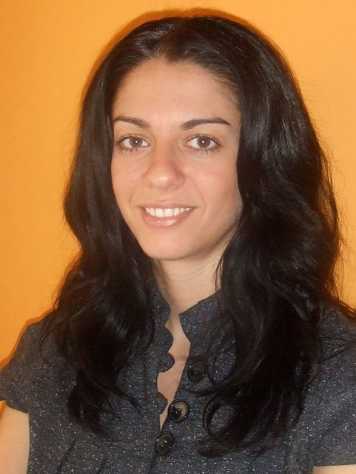
Eleni Chatzi is an Assistant Professor at the Institute of Structural Engineering. Her ERC funded research project aims to increase both the lifespan of wind turbines and the efficiency of their management for infrastructure operators. Through a combination of cost-effective sensor technology and state-of-the-art data-processing algorithms, she hopes to provide a smart system that can be used to monitor and evaluate turbines through their life cycles. With her project, she ultimately wants to develop an effective “protection suit” for management of these turbines from cradle to grave.
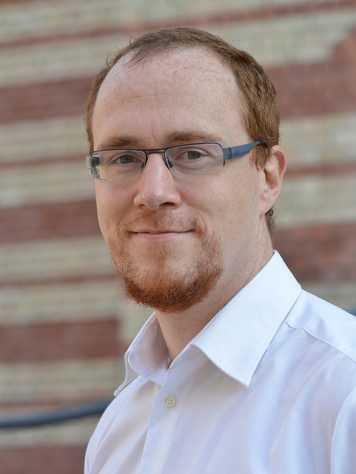
Torsten Hoefler is an Assistant Professor of Computer Science and conducts research into how to efficiently program heterogeneous supercomputers with millions of processors of different architectures. Achieving high performance on massively parallel computer systems of this kind is a key challenge in computer science. Complex applications such as climate simulations require as many arithmetic operations as possible to be performed simultaneously on various processors. However, traditional approaches to parallelism are becoming increasingly inefficient. Hoefler and his team now want to develop data-centric programming techniques that make it possible to optimally translate applications for various computer architectures.
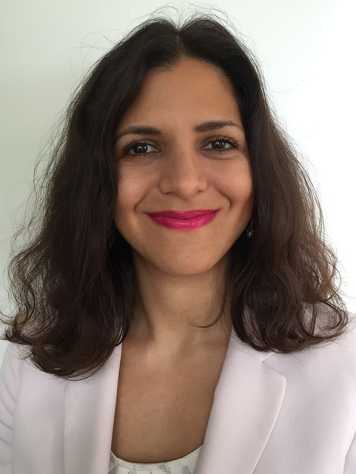
Maryam Kamgarpour is a postdoctoral fellow and lecturer at the Automatic Control Laboratory. In her research, she is interested in how uncertainties can be controlled in complex dynamic systems such as the air traffic system and the power grid system. In her ERC project, she hopes to develop a theory, as well as algorithms, for feedback control of power networks that accounts for uncertainties due to weather-dependent variations in the production of renewable electricity, as well as variations in demand. The project’s aim is to achieve better quantification and control of uncertainties and thereby to increase the stability and efficiency of the power grid.
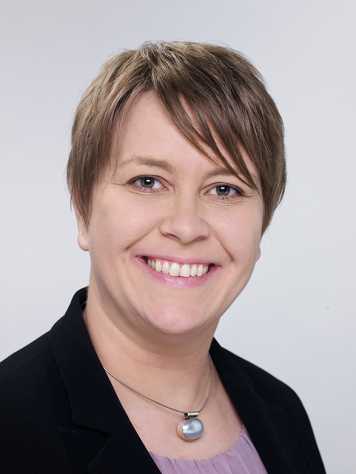
Laura Nyström is an Assistant Professor at the Institute of Food, Nutrition, and Health. Her group’s research focuses on dietary fibre and the associated phytochemicals in cereal grains and other plant components. In her ERC-funded project, Nyström hopes to investigate the connections in dietary fibre at a molecular and atomic level for the first time. One use for the resulting findings may be to improve the components of functional foodstuffs.
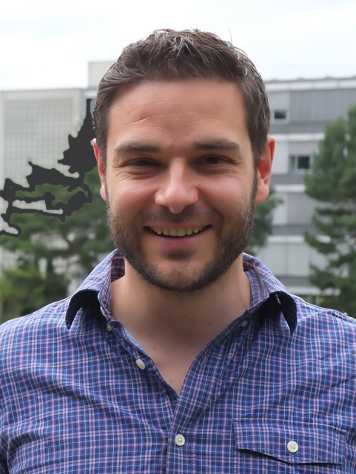
Secretion systems allow bacteria to inject specific proteins into other cells to fight competitors or cause disease. In his ERC project, Martin Pilhofer, Assistant Professor at the Institute of Molecular Biology and Biophysics, aims to investigate the most-widespread bacterial secretion system, T6SS, and to establish a model for its function. He is hoping to clarify the structure of the system’s membrane-anchoring complex, and to understand why multiple secretion machines are coordinated in certain regions of the cell. In order to resolve the mechanism of the actual interaction event, his group will develop an approach for imaging the system in an engaged state.
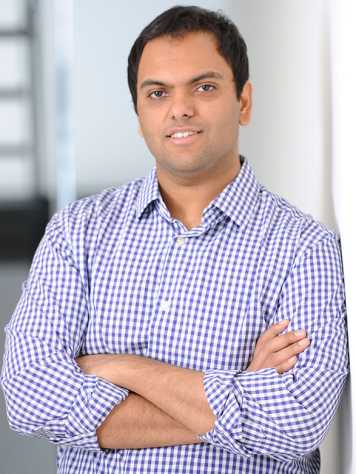
How exactly the body reacts with antibody production to vaccinations is of central importance for vaccine efficacy and immunodiagnostics. However, this antibody response is still not known in detail. In his ERC project, Sai Reddy, Assistant Professor of Biomolecular Engineering, is using the methods of high-throughput DNA sequencing and computational biology in order to profile the molecular network of antibody responses. Building on this, Reddy hopes to improve the rational design of vaccines and develop new bioinformatics tools for immunodiagnostics.
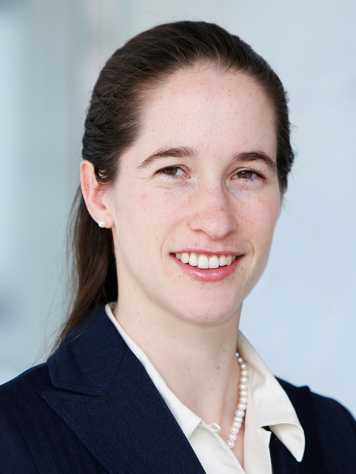
Vanessa Wood is a Professor in the Department of Information Technology and Electrical Engineering. With her ERC Starting Grant, she will research the relationship between the structure of lithium-ion batteries - from the atomic to the cell level - and their electrochemistry. Wood hopes to understand the origins of performance limitations in batteries and develop guidelines in order to improve the performance and safety of lithium-ion batteries. Based on these guidelines, she will work to develop economically viable technical solutions. Today, lithium-ion batteries are in widespread use and offer great potential for fields such as electromobility and the storage of electricity from renewable energy sources.
Amendment dated 24.02.2016
Another scientist at ETH Zurich is entitled to an ERC Starting Grant:
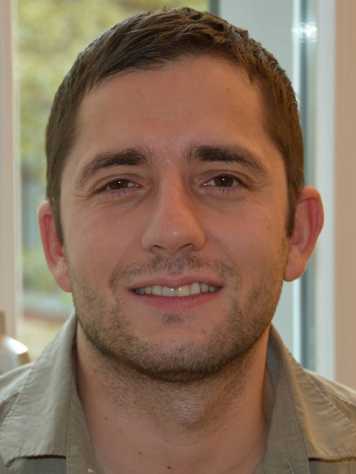
Martin Vechev, Assistant Professor in the Department of Computer Science, is developing new methods to help make software more reliable, secure and efficient. Computer programs and the tasks they perform are becoming more sophisticated and complex, pushing current methods to their limits. In his ERC project, Vechev is hoping to go beyond these limits by leveraging giant open source software databases known as “Big Code”. The aim is to develop machine learning methods to semantically filter the information in the databases and, ultimately, to statistically analyse it. The findings could help develop new programming methods, perhaps even some which will allow certain parts of programming to become automated.
ERC Starting Grants
The European Research Council (ERC) awards these grants to promote independent young scientists of any nationality, with two to seven years of experience following completion of their doctorate and who have highly promising scientific careers. The decisive criterion for awarding the grant is the submission of an outstanding research project undertaken at a public or private research organisation in an EU member state or an associated country. Up to CHF 1.5 million in funding is awarded over five years.
